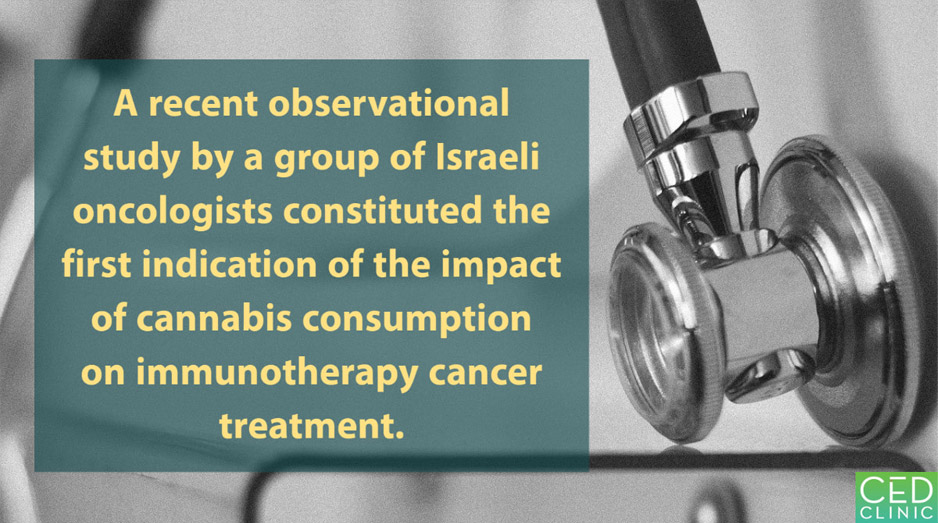Cannabis Consumption Used by Cancer Patients during Immunotherapy Correlates with Poor Clinical Outcome
In Summary:
Cannabis and its derivatives are widely used by advanced-stage cancer patients to alleviate cancer symptoms as well as treatment side-effects – for example, nausea, anorexia, and pain. However, cannabinoids such as THC and cannabinol – the main active cannabis – have been shown to modulate the body’s immune function. How cannabis use affects cancer patients’ immune systems in general and their immunotherapy progress in particular, unfortunately, are not well understood.
A recent observational study by a group of Israeli oncologists constituted the first indication of the impact of cannabis consumption on immunotherapy cancer treatment. This study showed that cancer patients using cannabis faced a more rapid worsening or metastasis (spreading to other parts of the body) of the tumor and a decreased overall survival compared to nonusers. Nonetheless, the use of cannabis reduced immune-related adverse side effects of therapy. In the other direction, the researchers found evidence of alterations that immunotherapy caused to the levels of blood serum endogenous cannabinoids as well. These findings reaffirmed a bidirectional interaction between the body’s endocannabinoid system – which is the direct target of cannabis – and immune system.
Based on these complex interactions, the oncologists didn’t discourage cannabis use altogether, but strongly warned that its consumption as a palliative treatment in advanced-stage cancer patients undergoing immunotherapy must be carefully monitored. They also tentatively proposed that blood serum endocannabinoids may constitute clinical markers for monitoring cancer immunotherapy treatment, which we currently lack.
Although additional studies with more rigorous study design to examine the mechanisms of the above observed effects are crucial before official treatment guidelines can be issued, the authors’ insights and fair caution should certainly be taken into consideration by oncologists.

